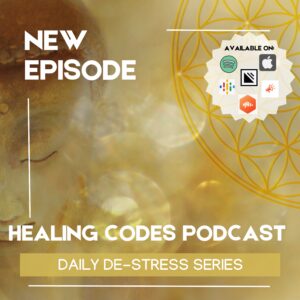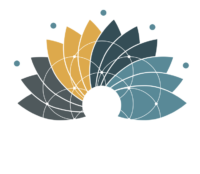 This week’s blog, Daily De-Stress the first in a 3-part series on how to eliminate the effects of stress on all levels of being.
This week’s blog, Daily De-Stress the first in a 3-part series on how to eliminate the effects of stress on all levels of being.
I’ll talk about the ways stress can dimmish our life force energy, ways to recognize it and practical tools with guided meditations to de-stress on a daily basis.
I’ll cover the three main components of destressing in a meaningful way: recovery, resilience and revision. You’ll learn about hidden/unconscious sources of stress and how to treat them using CxM on all levels of being: physical, energetic, emotional, ancestral and spiritual.
Stress is something we all deal with at some point in our lives. It can be situational or chronic or both, depending on a variety of causes. While stress is a universal term, every person experiences it differently depending on their childhood conditioning, ancestral history, lifestyle choices, relationship dynamics and financial situation just to name a few.
Because stress comes in so many forms and across all contexts of life it can be difficult to pinpoint its source in order to provide effective treatment options. Because of this, it calls for a whole-person approach to be able to treat it in a way that can have the best effect on being able to de-stress in a meaningful and lasting way.
The World Health Organisation defines stress as a state of worry or mental tension caused by a difficult situation. Their recommendations to treat stress are based on the standards of well-being such as eat well, get enough sleep, exercise regularly, create meaningful connections and interestingly enough limiting exposure to social media and news. I wholeheartedly support these recommendations, as they are foundational principles for general health and well-being. They are also principles I personally live my life by. Yet at the same time, mental health organisations have reported that stress has increased in the population by up to 20 % from last year alone. This is alarming since the world isn’t showing a tendency to slow down, and we must get a handle on how to effectively destress in order to stay healthy.
 People experience stress in a variety of ways including overwhelm, burnout, fatigue, anxiety, depression, physical illness, worry, reduced concentration, and difficulty in engaging with everyday activities. This can be caused by feeling under pressure, facing big changes in life, not having control over a situation, having an overwhelming number of responsibilities, and experiencing uncertainty. The more we experience stress on a daily basis the more likely it is to become chronic over time, which can significantly impact health and life longevity.
People experience stress in a variety of ways including overwhelm, burnout, fatigue, anxiety, depression, physical illness, worry, reduced concentration, and difficulty in engaging with everyday activities. This can be caused by feeling under pressure, facing big changes in life, not having control over a situation, having an overwhelming number of responsibilities, and experiencing uncertainty. The more we experience stress on a daily basis the more likely it is to become chronic over time, which can significantly impact health and life longevity.
The world is moving forward at a faster and faster pace, with an ever-increasing amount of information available at our fingertips. To keep up, we need to up our game in treating stress on an individual level. This means taking responsibility for it on a personal level and prioritizing a daily de-stress routine to keep things in check. This is my goal with this podcast series, to help you to identify the types of stress that impact you the most and give you tools to support your self-care practice on all levels of being. I’ll cover the traditional causes as well as the more esoteric ones which I hope will help you be able to break free from the cycle of stress.
People often think of stress management as a way to help de-stress. But you know what, this makes it seem like stress is something we have no control over and is a necessary evil that needs to be managed. Meditation, yoga, breathwork, and time in nature are all ways to manage stress but stress can’t fully be released until the underlying causes are treated and transformed into something more life-affirming.
 What if I told you that you can significantly reduce and even eliminate stress from your life in 3 steps: 1. focus on recovering from the effects stress has had on you up to this point, 2. build resilience to stressors so that they don’t have a depleting effect on you and 3. revise unconscious patterns of old conditioning so that the hidden sources of stress are transformed into empowering states of being that will eliminate the source of unconscious stressors.
What if I told you that you can significantly reduce and even eliminate stress from your life in 3 steps: 1. focus on recovering from the effects stress has had on you up to this point, 2. build resilience to stressors so that they don’t have a depleting effect on you and 3. revise unconscious patterns of old conditioning so that the hidden sources of stress are transformed into empowering states of being that will eliminate the source of unconscious stressors.
For example, stress can be caused by hidden factors such as ancestral entanglements, childhood conditioning, energetic disturbances and spiritual fractures.
Ancestral entanglements to the past can cause tension across the family soul which directly impacts your ancestral body. This results in draining your essential life force energy needed to recover when we experience stressful situations. If our ancestral body is weighed down by the burden of carrying pain, trauma and suffering for our family soul, then this will cause stress deep within your soul, limiting our ability to access the strength and support of our ancestors needed to feel supported, safe and buffered from the effects of stressful experiences. I use the Movements of the Family Soul Family Constellation work for this.
Childhood conditioning includes our core beliefs about ourselves and the world that are established in the first few years of life. These become locked down in our subconscious mind creating the foundational structure of our identity that settles in over a lifetime.
Over time, especially for those on the personal growth path, we outgrow these old beliefs and they become a limit to our ability to be able to create what we want in life. This causes a deep subconscious stressful inner conflict. Because if you go against the limiting belief to try to break free of old conditioned childhood patterns, there is an overwhelming sense of self-doubt, fear and worry which are all stress factors. Using NLP we can revise limiting beliefs into empowering ones that bring our desired outcome into manifestation. This eliminates the inner conflict and repurposes your life force energy in more life-affirming ways. This is an example of how we can relieve stress and build resilience by revising old patterns such as limiting beliefs.
 Disturbances in our energy body which are the result of significant or traumatic events in childhood during the ages when our chakras, auric layers and central channels are coming online will weaken our ability to stay energetically empowered. These patterns of disturbances formed from birth to 28 from root to crown, respectfully, will result in extra energetic weight carried by your spirit soul. In times of stress, if the energy body is weak, blocked or out of balance, we will experience the tension of stress through all of our energetic systems, meridians and essence. Like when you pinch a garden hose the flow becomes restricted because of the added pressure. Our energy body is the same, which causes stress to the underlying energetic template we need for health and well-being.
Disturbances in our energy body which are the result of significant or traumatic events in childhood during the ages when our chakras, auric layers and central channels are coming online will weaken our ability to stay energetically empowered. These patterns of disturbances formed from birth to 28 from root to crown, respectfully, will result in extra energetic weight carried by your spirit soul. In times of stress, if the energy body is weak, blocked or out of balance, we will experience the tension of stress through all of our energetic systems, meridians and essence. Like when you pinch a garden hose the flow becomes restricted because of the added pressure. Our energy body is the same, which causes stress to the underlying energetic template we need for health and well-being.
Our spiritual body can also become stressed if the soul has become fractured by traumatic events. This causes tension in our spiritual body as it becomes stretched out to try to include the fractured pieces. This creates a source of stress in the spiritual body, which limits its ability to hold the pure life-giving energies of the divine needed to live in harmony. Restoring our spiritual framework to an intact and flowing place brings forward the ability to live in harmony in all situations. So that when stressful situations happen, we can more easily restore our equilibrium and reduce the effects of stress on our entire system.
Let’s get into how we can begin to heal from stress in a way that allows for new ways of being to emerge to support you to de-stress on all levels of being to regain more energy, and purpose to access your full potential.
The first step is to bring the body matrix into a place where recovery from stressful effects is possible. Eating whole foods, getting restorative sleep, nurturing healthy connections, and staying active are all ways to assist the mind and body in relieving the pressure of stress on the system. Nourishing our physical body through diet, exercise and sleep is essential to dig the system out of the hole that stress gets us into, which is the foundation of recovery. Because if you have been pushing yourself, burning the candle at all ends, and not taking care of your physical body in a way to balance that out, you will become depleted. Over time, you will dig yourself into a hole of depletion that you must first recover from before you can build resilience and revise old patterns.
 I learned the importance of recovery through participating in endurance sports, including triathlon, which requires a lot of training if you actually want to enjoy the race. I was a reliable mid-pack finisher so I wasn’t in it for a podium place, I was in it for the fun of it and to deepen my mind-body connection by pushing the limits of my comfort zone. I remember a coach once told me that you gain the most fitness through rest. This was a quote from Mark Allen, a 6-time Ironman Triathlon World champion. I remember thinking that if the world champ lived by this rule, I would too. The idea is that you need to give the body time to recover from the stress of training in order to build more fitness. If you don’t you are just depleting and diminishing the effects of your training efforts. Leading to frequent injuries, adrenal fatigue and burn out which I experienced all of before I really valued recovery in my training and life in general.
I learned the importance of recovery through participating in endurance sports, including triathlon, which requires a lot of training if you actually want to enjoy the race. I was a reliable mid-pack finisher so I wasn’t in it for a podium place, I was in it for the fun of it and to deepen my mind-body connection by pushing the limits of my comfort zone. I remember a coach once told me that you gain the most fitness through rest. This was a quote from Mark Allen, a 6-time Ironman Triathlon World champion. I remember thinking that if the world champ lived by this rule, I would too. The idea is that you need to give the body time to recover from the stress of training in order to build more fitness. If you don’t you are just depleting and diminishing the effects of your training efforts. Leading to frequent injuries, adrenal fatigue and burn out which I experienced all of before I really valued recovery in my training and life in general.
It is a little counter-intuitive that resting builds fitness, but when you can embrace this as a tried and true methodology it will help you take the first step of learning to destress in a more effective way. As many first steps of breaking free of old patterning, this can be a tough one for people to be able to commit to making positive changes. This is due to the deeper underlying patterns of stress that I’ll cover in later episodes of limiting beliefs like fear of failure and ancestral entanglements of fear of not belonging.
Change begins with a choice. And the choice to change your relationship with stress begins by taking your power back in making lifestyle choices to allow your system to recover from situational and chronic stress. These changes don’t have to be monumental, they can be as simple as taking time in your day to sit quietly and breathe for 10 uninterrupted minutes. Even better if you can do this 3 times a day morning, afternoon and evening. Can you commit to your greatest good by agreeing to give yourself at least 10 minutes 3x a day to be still, breathe and clear the mind? It is these small steps that will allow you to begin to feel the benefits of giving yourself recovery time during each day that will allow you to commit more fully to prioritising self-care in your daily life.
Waiting for your yearly holidays to relax isn’t going to cut it. It is small, incremental changes that will make the biggest difference in the long term.
To be perfectly honest, this is why most people won’t sit still, in silence and just breathe. Because they don’t want to face what’s underneath. But here’s the hard truth. If you don’t it will eat away at you over time which can lead to more serious disorders that can become life-threatening.
 I remember once talking to a friend who was suffering from IBS (Irritable Bowel Syndrome) due to stress from work. Their mindset was that they needed to work hard, no matter what the consequences were to provide for their family. For them, stress was a small price to pay even if it caused them pain, fatigue and lost work days when the IBS flared up. I listened with compassion and with a complete understanding of how this stress was serving them. They had to work to the point of being stressed out in order to feel they were providing sufficiently for their family. I then offered this reframe: Yes but if you continue to work at this pace, without addressing stress this will ultimately lead to more serious health issues that will more deeply interfere or even take away their ability to provide for their family in the long term. This hit home for them and I soon saw them making positive changes in their life around self-care. They are now thriving in a way where stress is still in their life, but how they respond to it is different. It no longer makes them ill, instead, it has become a sign that they need to step up their self-care to allow for their system to recover in real-time, diminishing the negative effects of stress on their health.
I remember once talking to a friend who was suffering from IBS (Irritable Bowel Syndrome) due to stress from work. Their mindset was that they needed to work hard, no matter what the consequences were to provide for their family. For them, stress was a small price to pay even if it caused them pain, fatigue and lost work days when the IBS flared up. I listened with compassion and with a complete understanding of how this stress was serving them. They had to work to the point of being stressed out in order to feel they were providing sufficiently for their family. I then offered this reframe: Yes but if you continue to work at this pace, without addressing stress this will ultimately lead to more serious health issues that will more deeply interfere or even take away their ability to provide for their family in the long term. This hit home for them and I soon saw them making positive changes in their life around self-care. They are now thriving in a way where stress is still in their life, but how they respond to it is different. It no longer makes them ill, instead, it has become a sign that they need to step up their self-care to allow for their system to recover in real-time, diminishing the negative effects of stress on their health.
This is another important factor in being able to access the choice to allow recovery time, which is to identify how the stress is serving you. What good thing comes to you from being stressed? Here are some common ones I see in my clinical practice: I know I’m working hard enough if I feel stressed. Stress motivates me to focus. If I’m not stressed I’m not trying my hardest. Stress is part of the package of being successful. The good things that come from stress are then: feeling good enough, being successful and doing one’s best. These are pretty compelling reasons to keep things as is.
The key to making permanent changes is the preserve the value but in a different way than it had to be tied to stress. This helps the recovery part of the de-stress process. To acknowledge the positive outcome and find new ways to have these be true. Believing in yourself, Knowing you are loved, defining success in positive achievements, and believing that to work your hardest you must add self-care to keep you at your strongest.
 These are a few examples of how to take back your power from the stressors in your life. Schedule time in your day to just relax and breathe, preferably on your own so that you can condition your mind to become quiet. Ask yourself how being stressed is serving you and preserve that value but create a new way to achieve it. Give yourself nourishing foods to support emotional equilibrium. Prioritise sleep that will allow you to recover naturally during normal sleep cycles. Work towards quieting the mind since it is the overactive mind that creates internal stress. So set a timer for 10 minutes as you sit or lay down in a quiet, comfortable, and distraction-free place. If you do this before you get out of bed in the morning, at lunch and before you go to bed at night you will begin to notice a difference. It will also allow you to draw to the surface the underlying patterns that need to be addressed at a holistic level, such as limiting beliefs, ancestral entanglements, energetic disturbances and spiritual tension that I’ll be covering in the next episodes of the series.
These are a few examples of how to take back your power from the stressors in your life. Schedule time in your day to just relax and breathe, preferably on your own so that you can condition your mind to become quiet. Ask yourself how being stressed is serving you and preserve that value but create a new way to achieve it. Give yourself nourishing foods to support emotional equilibrium. Prioritise sleep that will allow you to recover naturally during normal sleep cycles. Work towards quieting the mind since it is the overactive mind that creates internal stress. So set a timer for 10 minutes as you sit or lay down in a quiet, comfortable, and distraction-free place. If you do this before you get out of bed in the morning, at lunch and before you go to bed at night you will begin to notice a difference. It will also allow you to draw to the surface the underlying patterns that need to be addressed at a holistic level, such as limiting beliefs, ancestral entanglements, energetic disturbances and spiritual tension that I’ll be covering in the next episodes of the series.
_____________
Find out more about Consciousness Medicine.
Upcoming summer retreats, courses, workshops and 1:1 sessions.
Sign up for my e-newsletter and stay connected on social media with links on the homepage.

